Sex: what men should know
Sex is a fantastic part of our lives. Men can have sex with lots of different partners, or just one. Men can also enjoy sex in many different ways. It’s all okay.
Responsible sex is about making the correct choices for ourselves and our partners based on mutual respect, open communication and honesty. This means looking after our health as well as the health of our partners.
Who men have sex with
Some of us are in relationships or are married; others of us are single. Some of us have several sexual partners. Many men only have sex with women, while many of us have sex with both men and women. Others only have sex with men.
We cannot choose whether we are attracted to women, to men, or to both; this is not something we can decide. It is just who we are.
We do choose how many men or women we have sex with and we make the choice to only have consensual sex with other adults.
What sex men have
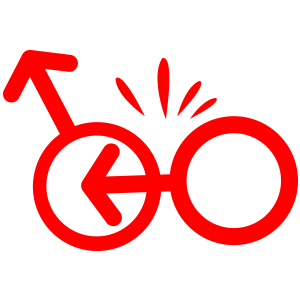 There are many different kinds of sex.
There are many different kinds of sex.
Kissing, oral sex (blow job), anal sex, vaginal sex, thigh sex, group sex and mutual masturbation are all sex acts we can choose to do with our partners.
Some of these acts are riskier when it comes to getting HIV than others. For example, anal sex without a condom and water-based lubrication poses a very high risk of getting HIV or passing it to others.
When men have sex
We can have sex when we are feeling in control of ourselves, or we can have sex when we have been drinking or taking drugs and might not be able to make responsible choices. If we think we are going to have anal or vaginal sex we should ensure we have condoms and water-based lubrication with us and that we use them.
Frequently Asked Questions
The Stuff Between your legs

I have a weak erection and a low sex drive. Is there anything I can use to be able to go on for hours?
Its normal to have a low sex drive sometimes and to struggle with getting an erection. There are many things that affect men’s sex drive and erections like their mental health, nutrition, and overall physical health. Illness like depression, diabetes, and Hypertension can all affect your sex drive. Your best option is to ask a healthcare professional and get their opinion.
You can also see a doctor to see if you have erectile dysfunction and there are some medications that you may be able to take as well. If you are suffering from some form of erectile dysfunction unrelated to another issue, there are some medications you may be able to take.
I’m thinking about getting circumcised but I am HIV-positive, is that a problem?
You can definitely get circumcised even though you are HIV positive! Some men think that circumcision is only for HIV-negative guys to reduce their risk of getting infected but there are plenty of reasons (traditional and medical) that circumcision may be right for you too. If you get circumcised, it would be a good idea to be on ARVs first to improve your immune system and ensure the healing process runs smoothly.
Whenever I have sex with my partner I end up cumming really quickly. It's really embarrassing. What can I do?
This is a common condition and is known as premature ejaculation. It is especially common in younger guys and mostly goes away without any treatment. There are a few things that can help slow down your ejaculation. First, start things of slow. Take a break if you feel like you are getting excited too quickly. Some men use condoms to decrease the stimulation to their penis to prevent premature ejaculation but remember to never use more than one condom at a time because they could break. If you are still concerned, speak to a healthcare professional who may be able to provide additional support.
Sometimes I have receptive anal sex and it's really painful. Is there anything I can do to make it more comfortable and pleasurable?
Anal sex does not have to be painful. Your anus is surrounded by muscles that are naturally very tight and unlike a vagina, the anus does not naturally lubricate itself so it is very dry. In order to make anal sex more pleasurable, you first need to make sure your anus is well lubricated with water-based lube. Apply lube before sex and during in case, it gets dry. Next, make sure your muscles around your anus are relaxed. You can use your fingers to slowly stretch these muscles until you feel comfortable. You should also control how quickly and deep you are penetrated so that you can slowly let your muscles relax. Its easier to do this if you are sitting on top so you can control how things go.
STIs

I found out that someone I have sex with has an STI. What should I do?
Its easy for many STIs to be transmitted between sex partners even when condoms and lube are used. So if someone you have had sex with has an STI you should go to the clinic and let your healthcare worker know. Remember, STIs sometimes don’t make symptoms even if you are infected. So its good to get check out and treated.
How do I get tested for STIs?
How you get tested for STIs will depend on what health care services you have available to you. You can find friendly clinical services by contacting your local organizations. Many healthcare facilities will be able to use a small drop of your blood to test for HIV and Syphilis. Some clinics may not be able to test for some STIs easily like Hepatitis A, B, and C, but you should still speak to a healthcare worker about them. Finally, other STIs like Herpes, Chlamydia and Gonorrhea can be checked visually or you may receive treatment even if you have no symptoms if your partner has been infected.
What kind of infections can I get if I have sex with another man without a condom?
You can be exposed to the same STIs whether you have condomless sex with another man or a woman. These include Chlamydia and/or Gonorrhoea, Syphilis, Hepatitis A, B, C, Warts (HPV), Herpes (HSV), and HIV. Find out more about these STIs here.
There is something wrong with my anus, I think maybe I have anal warts. What do I do now?
Anal warts are caused by a sexually transmitted virus called HPV (human papilloma virus). Health providers are able to treat these warts in a number of different ways depending on the facility (freezing them (called cryotherapy), using creams or lotions or sometimes surgical removal. Some men feel uncomfortable discussing this with a health care provider or letting them know that they have had receptive anal sex. If that is the case, you should speak to your local organizations to find a health care provider that provides competent and friendly service to men who have sex with men.
HIV
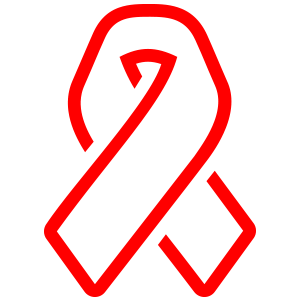
I think I’ve just been exposed to HIV. What do I do now?
If you believe you are HIV negative and that you were exposed more then three days ago then you should let your healthcare worker know and get tested after your window period. If you are HIV-positive then you should start ARV treatment.
If you think you have been exposed less than 72 hours ago (3 days) then you may be able to get P.E.P. If taken correctly, P.E.P will significantly reduce your chances of getting HIV. Find out more here.
After you have received PEP you will be reminded to come to the clinic after one month, and again after three months, to make sure that the PEP worked and that you are still HIV negative.
A guy came on me. Am I at risk?
Its normal to be worried if you are unsure how HIV is transmitted or if you don’t know if you have been exposed. For HIV to transmit each of the following has to happen:
- Your sex partner has to be HIV positive
- There has to be enough HIV in their to be transmitted. HIV-positive people on ARV medications who are virally suppressed do not pass on the virus to others.
- Their HIV-infected bodily flood (semen or blood) needs to enter your body through the inside of your anus, under your foreskin, the head of your penis, the pee tube at the end of your penis, your eyes, or an open cut or sore on your body.
If you are not sure if his cum actually went into your body or unsure of his HIV status or viral suppression then the risk is still there. The best thing would be to go for an HIV test and then again after 4-6 weeks to exclude the window period.
How long does it take to know if I am HIV positive or negative?
The time you are infected or exposed to the HIV virus depends on how your body responds to the virus by producing antibodies. You can generally test HIV positive between 4-6 weeks after exposure but a small percentage of people can take up to 3 months for this to happen. This time frame also depends on the HIV test being used so make sure to ask your healthcare provider.
I'm HIV-positive and feel so alone. What can I do?
There are many guys who are positive who feel exactly the same way as you do, you are not alone. The best thing for you to do is to find a support network of other people living with HIV or create your own support network by letting a close friend or family member you trust know about your status. Check with your local organizations to get a referral to these kinds of groups.
I'm negative and my partner is positive. What are my chances of being infected?
There are many ways now for people who have different HIV status to have sex safely.
- If the HIV positive partner has been on ARV medication for at least 6 months and has an undetectable viral load, then they will not transmit the virus to their sex partner.
- The HIV negative partner can start PrEP. Taking PrEP will provide 92-100% protection from getting HIV from their sex partner.
- Using condoms and water-based lube consistently will also prevent spreading HIV between partners.
Its important to open and honestly discuss your HIV status with each other so that you can find an easy and convenient option to prevent HIV.
I’m HIV-positive, where can I get ARVs?
You can get ARVS from a public health institution or through a funded NGO for free. Find a list of service providers here who can provide ART or a referral to best facility for you.
PrEP
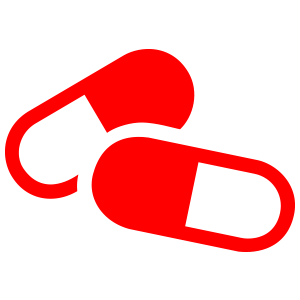
Where can I get PrEP?
Unfortunately, PrEP is not easily available in many places yet. This is because it is still relatively new and governments are working to find the best way to make it available. You may be able to access PrEP through special projects that are providing it or even through a local clinic if it is available in your community. You should contact one of your local organizations to find out more.
Find out more / Download
Check out the links below for more information on men and sex.
- Link
- Link
- Link
You can also download the contents of this section by clicking here.
How do I get HIV?
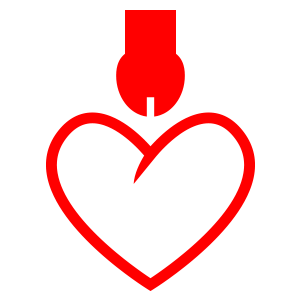 You can become HIV-positive if you are exposed to the blood, semen, or vaginal fluid from someone who is HIV-positive and who is not virally suppressed. If someone who is HIV-positive is on treatment and are virally suppressed, then the risk of being infected by HIV is dramatically lower.
You can become HIV-positive if you are exposed to the blood, semen, or vaginal fluid from someone who is HIV-positive and who is not virally suppressed. If someone who is HIV-positive is on treatment and are virally suppressed, then the risk of being infected by HIV is dramatically lower.
Being exposed to HIV can occur through unprotected sex and/or through sharing a needle. Anal sex without a condom is a very risky type of unprotected sexual behaviour and can easily lead to becoming infected with HIV or passing it on to somebody else. The risk of HIV transmission through anal sex without a condom and waterbased lubricant is about 18 times higher than for vaginal sex.
The risk of getting infected with HIV is much higher for the bottom (receptive) partner than the top (penetrating) partner. This is because the bottom guy is more likely to get semen inside his anus, which is the easiest way to get HIV.
How do I know if I have HIV?
Getting tested for HIV
To know if you are HIV-positive or HIV-negative you need to take an HIV test. Taking an HIV test is really easy. HIV tests are safe, reliable, and only require a drop of blood from your finger to measure your body’s response to HIV. You will get the result in a few minutes after the test.
What does my HIV test result mean?
If a test is positive, it means you are infected with HIV. People who have HIV in their bodies are often referred to as ‘HIV-positive’. Find out more about living long, healthy and full lives with HIV, here.
If the test is negative, it means that you are probably not infected. However, if you think you’ve been exposed to HIV in the 2-4 weeks before your test, then you should get tested again in about 2-4 weeks. This is because the HIV test may not detect the virus in people who were just infected in the last 4 weeks.
Doctors and nurses say that if you are exposed up to 4 weeks ago you are still in the ‘window period’. What this means is that the HIV test may say you are HIV-negative when you may actually be HIV-positive. Make sure to talk to the healthcare provider giving you the test and let them know if you may be in your window period.
When should l get tested?
All sexually active people should be tested for HIV at least every 3 months. If you have never had an HIV test, then you should get tested now.
Sometimes, we want to delay getting a test because we are nervous that the result will be positive. We all get scared sometimes and that’s normal. But having a test and knowing if you are HIV-positive or HIV-negative puts you in control of your life.
If the result is HIV positive, you can access counselling, support and the correct medical services, which mean you will lead a long and healthy life.
Knowing your HIV status allows you to make the best choices about your future health so that you remain well and prevent spreading the virus to others.
Where can I get an HIV test?
You can get tested for HIV at your nearest clinic. The nurse may ask you questions about your sex life as part of the test. Remember, you only need to provide the information you feel comfortable giving. Also, take a look at these resources for friendly service providers for men and for men who have sex with men near you.

How do I Prevent HIV?
There are many simple steps we can all take to prevent HIV.
These steps work best when they are combined together. So if one fails or we forget to use it, then we can still rely on the others to help us stay HIV-negative.
Those of us who are HIV-positive can also take steps to make sure we don’t pass on HIV to others.
Using condom and condom-compatible lube when having sex
 Using condoms is your best defence against HIV and other STIs because they prevent the exchange of body fluids that might contain HIV (semen and blood).
Using condoms is your best defence against HIV and other STIs because they prevent the exchange of body fluids that might contain HIV (semen and blood).
Those of us who are HIV-positive should also use condoms when we have sex to help prevent our spreading HIV to others and to stop us getting other STIs. Find out more information about how to use a condom here.
Did you know that there are correct ways and incorrect ways of using condoms?
- Never use more than one condom at the same time on your penis. You might think this makes you more protected. But it doesn’t. It actually means the condoms can break by rubbing up against each other
- If you are having sex with more than one person then use a fresh condom every time you penetrate a new partner to avoid spreading HIV and other STIs
- Find condoms that work best for you since they come in different shapes and sizes. Here are some places to find condoms
- Always use condom-compatible lubricant with a condom, especially for anal sex. Don’t use Vaseline or spit. Find out more below
Water-based Lubricant, or lube, is a slippery substance that makes having anal sex much more comfortable and fun. It also stops your anus or penis from being hurt or damaged from too much friction.
Water-based lube, like KY jelly, is the best lube to use with condoms because lube made with from liquids will damage the condom. When using water-based lube, we should remember:
- Cooking oil, baby oil, petroleum jelly (or ‘Vaseline’), and many hand lotions are all oil-based and shouldn’t be used because they will break your condom
- Using saliva is not slippery enough to be used as lube as it evaporates quickly and can spread other STIs (although HIV is not contained in saliva)
- Always put plenty of lube on the opening of the anus and on the condom after you’ve put it on before you start having sex. If the sex starts to feel dry or sticky, or carries on for a long time, use more lube to protect the condom and keep you and your partner happy
Using ART medication to prevent HIV
Did you know some of the same ART medications we use to treat people with HIV can also be used to prevent HIV-negative people from becoming infected?
Using these medications before being exposed to HIV is called PrEP (Pre-Exposure Prophylaxis) and using them in the 72 hours after being exposed to HIV is called PEP (Post Exposure Prophylaxis).
PEP
Maybe a condom broke during anal sex or you think you have been exposed to HIV in some other way. What can you do? You may be able to access PEP from your local clinic. To work, PEP must be started before 72 hours (3 days) have passed after your exposure.
PEP tablets need to be taken every day for one month but may cause some side effects like nausea or dizziness that can make it harder to take the medication. After one month you will have another HIV test to make sure you are still HIV-negative.
PrEP
If you think you might be exposed to HIV, you can take PrEP to stay HIV-negative, even if the HIV virus enters your body.
You will need to visit a clinic that provides PrEP and meet with a healthcare provider before taking PrEP tablets.
Men need to take PrEP everyday for at least a week before it will protect them from HIV. Guys on PrEP will need to keep taking their tablet every day for it to keep them HIV-negative. It’s important you don’t miss a daily tablet if you still want to be protected by PrEP.
If you remember to take your PrEP tablet every day, PrEP will provide you an additional 92%-100% protection from HIV. That’s a lot!
PrEP may give you mild side effects that normally go away.
PrEP it does not protect against other STIs. Using PrEP and condoms together is best because condoms also protect you from other STIs.
When considering PrEP, remember:
- PrEP is an excellent way to protect against HIV infection especially for those of us who find it hard to use other prevention strategies
- You must take PrEP daily for it to be effective. If you do not take your PrEP tablet every day, then it may not protect you from HIV
- PrEP is scientifically proven to prevent HIV and supported by many medical agencies and governments around the world
- PrEP is safe. Nine out of every ten people who take PrEP will have no side effects at all. If you do have side effects they will be mild and go away in time. Your doctor will also monitor you for any potential serious side effects and discontinue your PrEP if necessary
- You do not have to take PrEP for the rest of your life. PrEP is not like HIV treatment even though it uses some of the same medication. You can take PrEP for a period of your life when you think you need it and then stop when you are no longer at risk of HIV
- PrEP doesn’t protect against other STIs so should still be used in combination with condoms and regular testing
- Even though PrEP is highly effective it is not available everywhere yet. Check out our list of service providers for more information
Changing your behaviour
 The truth is, changing our behaviour is really hard, especially when it comes to sex. Even if you’re not perfect, like most of us, here are some things you can do to lower your risk of becoming HIV-positive:
The truth is, changing our behaviour is really hard, especially when it comes to sex. Even if you’re not perfect, like most of us, here are some things you can do to lower your risk of becoming HIV-positive:
- Carry a condom and a small sachet of lube with you when you go out. You’ll be more likely to use them if you’ve got them with you.
- If you’re not using condoms when having sex, try to reduce the number of guys you have condom-less sex with. This is not perfect but will reduce your exposure if you and your partners test frequently. Find out more about testing here!
- Keep a lookout for STI symptoms. You should be aware of STI symptoms no matter how many partners you have. You can avoid having sex with someone if you notice a visible STI symptom. If you notice one on yourself, you should stop having sex until you get it tested and treated. Having an STI will increase your risk of getting HIV and other STIs. Remember some STIs don’t produce symptoms, so get tested regularly anyway.
- Drinking less alcohol may help you reduce your risk because drinking alcohol can make you make bad decisions about yourself, who you have sex with, and how you have sex.
- If you are using injection drugs with needles make sure to use clean needles and kits. Find out everything you need to know here.
How do I live with HIV?
Just because HIV is a part of our lives does not mean it has to define us. Knowing our HIV status means we can make the right choices to lead long, happy and healthy lives.
Living With HIV
If you’ve tested positive of HIV you may feel overwhelmed, confused or scared. But remember that you are still you. You still are the same person you were yesterday. But now you have the right information to make sure you lead a long, healthy, and sexually fulfilled life.
It’s ok to feel scared or confused. Its normal to have these emotions after testing HIV-positive. But it is also important to remember that taking the right tablets every day will control the HIV virus in your body and mean you can lead a great life.
Now that you have the right information about you HIV-positive status you can make smart decisions about your health. You can start by:
- Learning how HIV works inside of you and how it affects your body
- Understanding your treatment options
- Building a support system of friends or family
HIV and your Health
HIV affects our bodies, especially the immune system and its ability to keep us from getting sick.
Health workers know how HIV is affecting your own body using two kinds of tests:
- CD4 count measures how strong your immune system is. If there is a lot of HIV in your body, generally your CD4 count will be low.
- Viral Load measures how much HIV is in your blood.
We take what is called ARV treatment to keep our immune systems strong. Keeping the immune system in our bodies strong by taking ARV tablet means we will be healthy. It also means that the amount of HIV in our bodies decreases.
This is very important and means eventually, if you keep taking your pills every day, doctors and nurses won’t be able to detect the HIV in your body. When you have a viral load that is not detectable it means you cannot spread HIV to others.
When you are living with HIV, sexually transmitted infections (STIs) such as syphilis, hepatitis or genital warts can be very serious. They can be harder for your immune system to fight. It is important to learn as much as you can about HIV, STIs and sexual health: A good place to start is the section on Sexually Transmitted Infections.
Besides taking treatment, eating a balanced diet, including fruits and vegetables, is important. Avoiding additional stress to your body, like drinking too much alcohol, is also important. Look after your body and it will keep looking after you. Don’t forget, like everyone else, men living with HIV can still catch a cold or malaria. If you feel very sick, rather than worry, go and see a health worker.
Understanding HIV Treatment
Always remember, just because you are HIV-positive does not mean you can’t have a great life and live to be old. All of us who are HIV-positive just need to remember to take our ARV tablets every day and look after our bodies.
When we take ARV medication the virus is controlled by our bodies. Our immune systems can then do their job and protect our bodies from other infections (such as TB).
Once you start ARV treatment, you will need to take your ARVs every day for the rest of your life in order to keep HIV from growing.
It is a bad idea to start and stop your ARVs because this will give HIV a chance to grow again inside your body. If you keep stopping ARV medication and then starting it again, the ARV medications can become a lot less effective.
Some men are worried about the side effects (negative effects) of ARVs, but modern tablets don’t really have many side effects, and those that do are easy to manage.
Current HIV treatment guidelines recommend treatment of everyone who is HIV-positive regardless of your CD4 count level.
HIV and your relationships
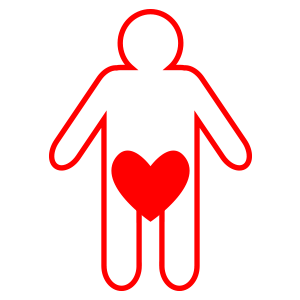 When do I tell someone I have HIV? How do I tell them?
When do I tell someone I have HIV? How do I tell them?
These are common questions we all have when we find out we are HIV-positive or sometimes when we have been living with HIV for some time.
The first thing you need to know is that information about your HIV status is confidential and it's up to you, and only you, to decide how and when you are ready to let others know.
There are many possible benefits to telling others. Letting other people know can help you accept that you are living with HIV. Telling others can also mean you have people to help support you as you start ARV treatment.
But it is also important that you tell people who you trust. And that you tell people who you think will be supportive. Think of someone, for example, a close friend or family member, who you know you can trust and will not share any information with others.
When possible, you should also tell your sexual partner or partners that you are HIV-positive, so that they can be checked for HIV as well. If it is not possible to disclose your status to your sex partner or partners, you have a responsibility to protect them from infection by using condoms and other HIV prevention methods such as ARVs consistently.
If you are in a long-term relationship, it is often preferable to tell your partner that you are HIV-positive because not doing so could decrease the level of trust in the relationship and place your partner at risk for getting HIV.
Remember you have a range of different HIV preventions options which they can use with your partners. Some people are able to use condoms most or all of the time and this provides a high level of protection. For couples or partners where using condoms is very difficult, different options are possible. For example, taking ARVs so that you have an undetectable viral load together with PrEP for HIV-negative partners can be used together for HIV protection.
Find out more / Download
Check out the links below for more information on HIV.
- Link
- Link
- Link
You can also download the contents of this section by clicking here.
Types of STIs
Sexually Transmitted Infections (STIs) can stop us from having the best and most enjoyable sex lives.
If they are untreated, some of them can also cause long term damage to our bodies. We all need to be aware of the different types of STIs so that we do our best to stay healthy and make sure we keep our partners healthy too.
Having an STI can also increase the risk of becoming HIV-positive if we are exposed to the virus. STIs also can be a lot more of a problem for those of us who are HIV-positive.

Syphilis
Symptoms:
- One or more painless sores, caused by a bacteria, may appear on the lips, mouth, penis, anus or inside the rectum about 1-3 months after being exposed.
- 3-6 months later symptoms can include a rash on your body, sores on your palms or feet, and sores in your mouth or anus. If infected after many years, Syphilis can cause you to feel sick, and lead to problems with your organs, or confusion.
- If left untreated, Syphilis can cause serious problems in your body and even can cause death.
- It is possible to have Syphilis and spread it to others and not have any symptoms at all.
Treatment:
- Syphilis can be treated with antibiotics and you can be cured. It is easier if you are treated early as this will prevent more serious problems from occurring.
- First syphilis sore which may happen 1-3 months after being exposed will heal on its own but you will still be infected and still require treatment.
Gonorrhea and Chlamydia
Symptoms:
- A bacteria causes similar symptoms for both Gonorrhoea and Chlamydia including white or yellow discharge (dripping) from the penis, or an infection of the anus or mouth; discomfort when urinating; or pain or swelling of the scrotum.
- It may take 1 – 10 days after exposure to the germ before symptoms appear.
- It is possible to have both Gonorrhea and Chlamydia and spread it to others and not have any symptoms at all.
Treatment:
- Gonorrhoea and Chlamydia can be cured by taking antibiotics.
Herpes (Herpes Simplex Virus)
Symptoms:
- The virus will cause small blisters on your lips, penis, or anus that contain fluid and when they burst cause painful sores.
- Sometimes you can’t always see herpes even if you are infected, and it can take 2 to 20 days after infection before symptoms (signs) occur.
- Herpes can make your penis, scrotum, and/or anus itch or tingle and also cause you to urinate often.
Treatment:
- Herpes can be treated but not cured so you could have repeated outbreaks of these blisters over time.
- Creams can be used to reduce the pain of outbreaks and medication can be used to reduce the number of outbreaks you have.
Warts (Human Papilloma Virus)
Symptoms:
- A virus causes small hard bumps to appear on the penis, scrotum, and/or anus either alone or in clusters.
- Warts are not painful but can become itchy, uncomfortable, and may bleed if irritated from rubbing.
- It may take 1 to 6 months after infection before warts start appearing.
- You may be infected with the virus that causes warts and spread it to others without having any warts.
Treatment:
- Your body will clear the virus that causes warts naturally over a long period of time and there are many types of treatments to remove warts. Even after treatment, the warts may continue to return until your body clears the virus that is causing them.
- Warts can be removed by burning, freezing, some special creams, or a small operation (for example, if they are inside your anus).
- If they are not treated warts may sometimes spread to other parts of the body, and could lead to cancer of the penis and anus.
Hepatitis
Symptoms:
- Three types of viruses (HEP A, HEP B, HEP C) all cause liver problems, jaundice (yellow eyes), nausea, abdominal pain and vomiting.
Treatment:
- Hepatitis A (HEP A) can be prevented with a vaccine. Infection can make you very ill but most people will recover without any long-term problems.
- Hepatitis B (HEP B) remains in the body for a very long period after infection, causing liver damage and a risk of cancer. Hep B can be prevented with a vaccine. It is difficult to cure but can be controlled with the same medications used to treat HIV.
- Hepatitis C (HEP C) The germ stays in your body and causes long-term liver damage. It can be cured with very expensive medications which are hard to access. There is no vaccine to prevent Hep C.
How are STIs Spread?

You can become infected with an STI if you are exposed the bacteria or virus that causes it.
- Syphilis – is spread through direct contact with a syphilis sore on a penis or inside a mouth or anus or through an infected bodily fluid.
- Gonorrhoea and Chlamydia – are spread after exposure to their bacteria in the urethra of a penis, a mouth, or an anus.
- Herpes – is spread through direct contact with the blister or sore on a penis, mouth, or anus. The blister fluid is very infectious.
- Warts – require direct contact with the virus that causes warts, even if no warts are present on the skin.
- HEP A, B, C – after exposure to the virus through faeces (HEP A), blood (HEP B & C), or other fluids like saliva, urine, or semen (HEP B).
Most STIs can be transmitted through many kinds of sexual activities including:
- Both receiving and giving oral sex
- Licking someone’s anus or having your anus licked
- Through giving or receiving anal sex
- By Rubbing penises together
- Through Sharing sex toys
These sexual acts generally expose you directly to the bacteria or virus that produces the STI.
Remember
- Unlike HIV, other STIs do not always require you to be exposed to bodily fluids like semen or blood.
- You can't always see STIs because some do not produce symptoms and other produce sores in the mouth or anus where you can not see them.
How do I prevent getting an STI?

If you’re having sex, especially with a lot of different partners, then chances are you may eventually be exposed to an STI. Unfortunately, there is no perfect way to protest against all STIs because:
- unlike HIV, many do not require exposure to semen or HIV.
- they can be spread through skin to skin contact or oral contact.
- some STIs do not produce symptoms, making them impossible to see.
Here are some ways you can help reduce your exposure to STIs:
- Using condoms and lubricant will definitely reduce your risk of exposure when having anal sex, especially for STIs that produce sores inside the anus that you are unable to see.
- Look and see if your sex partner has any visible symptoms of STIs including sores or discharge around their mouth, penis, or anus. If you see something that concerns you, you should avoid having sex until they can treated. Learn about the common symptoms and what these STI’s look like, here.
- Keep aware of your own health and any possible STI symptoms you may have. Having an STI can increase your likelihood of contracting others, including HIV. In fact, you are up to 5 times more likely to get HIV or to infect a partner if you have Syphilis. This is because of the sores produced by STIs make it easier for HIV to get into your body. If you notice any symptoms, you should seek treatment right away.
Where can I get treatment?
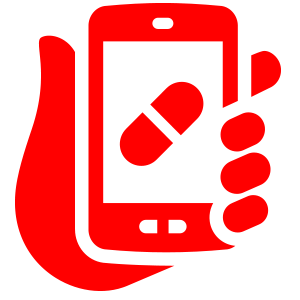
You can get treatment for most STIs at your local clinic where antibiotics are available. Some clinics may not be equipped to treat STIs like warts and this may need referral to a larger facility.
Some men are concerned to seek treatment for certain STIs especially if it involves the anus. They are worried that health care workers will criticize them for having anal sex. Unfortunately, this is a valid concern because not all health care workers are trained to support men who receive anal sex.
Find out where you can get care from specialized people for guys like you here.
Find out more / download
Check out the links below for more information on STIs:
- Link
- Link
- Link
You can also download the contents of this section by clicking here.
Recreational Drugs and Substance Use
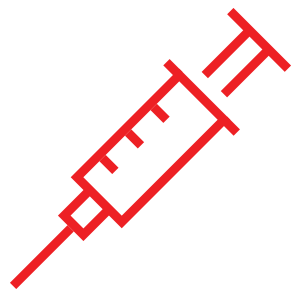
What Men Should Know
Men use substances for a lot of reasons. Sometimes those substances are legal, like alcohol. Other times, those substances may be illegal. Regardless of the type of substance you use, its important for you to understand how it affects your body so that you can use it more safely and protect your health.
Using Drugs with Sex
Some men use drugs to make sex better. Some drugs can intensify sexual pleasure but they can also decrease inhibitions and contribute to risky sex, leading to HIV infection and other sexually transmitted infections (STIs).
Using Drugs with Needles
Injecting drugs with needles can be one of the highest risk ways to get HIV if needles are shared between HIV-negative and HIV-positive people.
Using Drugs with ARVs
Some men use ARV medication as a recreational drug to get high. Like other substances, this can have some serious side effects. Men who use other drugs while taking ARV medication for HIV treatment are also at risk for the drugs interacting with each other negatively. Substance use also can depress our immune systems so using substances can make it harder for ARV’s to keep men living with HIV healthy.
Types of Drugs
Alcohol
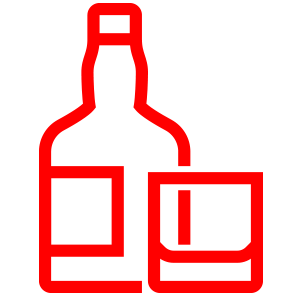
Alcohol is the most commonly abused recreational substance. It can lower inhibitions, cause poor judgement and therefore also increase your risk of engaging in irresponsible sex. Studies have found that drinking alcohol before engaging in sex significantly increases the likelihood of engaging in riskier sex.
Long-term alcohol abuse contributes to erectile dysfunction and liver damage. Liver damage is an especially serious concern should someone need to start taking ARVs (treatment for HIV). Liver damage can decrease your ability to tolerate ARVs.
Uppers – Stimulants

Uppers are drugs that stimulate the brain. They induce a sense of temporary well-being and confidence. After this sensation, there is usually a period of feeling down, or depressed. This can make people want to use more stimulants in order to feel better. This process can cause addiction very quickly. Uppers include the following:
- MDMA and Ecstasy: Also called E, Love Drug, XTC, X
- Cocaine: Also called coke, chanel
- Khat: Also called mairungi, miraa, gomba, cat, kitty
- Crystal Methamphetamine: Also called tik, tina, crystal, meths, krank, tweak, ice, X-tina, sugar, glass
Downers – Depressants

Downers decrease mental or physical functioning and have a relaxing effect. After using these substances individuals may feel very anxious or agitated and want to use them repeatedly. This can easily lead to dependence and addiction.Downers include the following:
- Heroin: Also called smack, skag, brown, H, brown sugar, white junk.
- Marijuana: Also called dagga, cannabis, weed, blunt, grass, herb, boom, joint, spliff, ganja, hash, skunk, pot
- Mandrax: Also called buttons, smarties, double barrels, happy pills, mandies, mandrake or mandrix
- GHB: Also called Liquid E or G
- Alcohol: Alcohol is the most commonly used downer
Recreational drugs can cause serious damage when they impair the normal functioning of the body, increasing one’s risk of heart and liver disease, neurological disorders and sexual dysfunction. When taken in an overdose they can also kill you.
Find out more / Download
Check out the links below for more information on substance use
- Link
- Link
- Link
You can also download the contents of this section by clicking here.
Recognizing Violence and abuse

We often think of men as perpetrators of violence so we aren’t always prepared when we are the victims of it.
Many men who have sex with men experience physical violence from others because of the stigma and prejudice towards them. This violence can come from strangers but also from our loved ones too in our families and among our friends.
We can also experience abuse from our sexual relationships and our partners. This might be physical violence, sexual assault, or even emotional violence. Sometimes our sexual partners haven’t disclosed their own sexual practices to others so they threaten us or resort to violence so we will keep their secret.
Experiencing these kinds of violence is threatening to our well-being and can lead to mental health issues and even increase our risk of getting HIV.
How do I get help?

You do not deserve to be victimized, for any reason. If you are experiencing violence or abuse, even if its from a loved one or your sexual partner, you should get help to protect yourself.
How do I get help?
Dealing with violence is something you don’t have to deal with on your own.
- Remember that you do not have to be ashamed that this is happening to. You can share with a friend or trusted family member.
- Seek input from organizations who can help show you your options and educate you about what you can do.
- If you have been sexually assaulted, try and seek PEP within 72 hours so that you can potentially prevent HIV transmission.
Find out more / Download
Check out the links below for more information on coping with violence:
- Link
- Link
- Link
You can also download the contents of this section by clicking here.
Why is mental health important?

Your mental health refers to how well you are feeling emotional and well your mind is working. Your mental health is very important because it can affect your physical health and your overall well-being.
When someone has a mental health issue, it means their mental well-being is suffering just like your body suffers when it gets hurt. There are many reasons people experience mental health issues. Some men are born at greater risk and others are at risk after dealing with things like stress or trauma.
Sometimes mental health issues can be small and go away easily. Other times they can be serious and make it hard for people to function normally.
Men who have sex with other men may experience mental health issues like depression and anxiety, not because of who they have sex with but because they may experience violence, stigma, and discrimination.
Being able to recognize a mental illness is important because sometimes they can increase your risk for getting HIV by increasing your use of substances or of high risk sex.
Find out more about two common mental health issues, Depression and Anxiety, and importantly, where you can get help.
Anxiety and Depression

Anxiety
Anxiety is a regular emotion that is a closely related to fear. Everyone will feel anxious at some point in their lives. Anxiety can become a mental health issue when it happens a lot or when you feel like it never goes away.
This type of anxiety may have both physical and mental symptoms including:
- Physical: difficulty breathing, tightness in your chest, sweating a lot, changes in your heart rhythm, dizziness, nausea, diarrhoea.
- Mental: strong feelings of fear, feeling very uneasy a lot, worrying a lot more than usual
This kind of anxiety can be caused by many different things. Using substances, like cocaine or other stimulants can increase anxiety. Some men who have sex with men may be exposed to violence or discrimination that leads to fear and can create an anxiety mental issue.
Understanding anxiety is important because it can influence how your behaviour and the things you do. Some men may drink more alcohol to try and cope with the symptoms of anxiety and this can then also increase high-risk behaviours like having sex without a condom.
Depression
Everyone feels sad or low sometimes, that’s a normal and healthy part of being human. When feeling sad or low doesn’t seem to go away or it starts to affect your ability to live your life normally then you might be depression. Here are some of the symptoms of depression:
- You feel low or depressed almost all day long and for almost every day
- You feel hopeless about your life or you feel that you are worthless
- You can’t think clearly or concentrate like you used to
- You aren’t excited about the activities you used to like or you aren’t interested in everyday life
- You think a lot about death or even trying to kill yourself.
Just like with anxiety, depression can be something people are born being more prone to and other develop because of factors in their lives. Depression is common in men who have sex with men because of the violence, stigma, and discrimination they experience.
If you think you are suffering from anxiety or depression, find out how to get help here.
Where do I go for help?
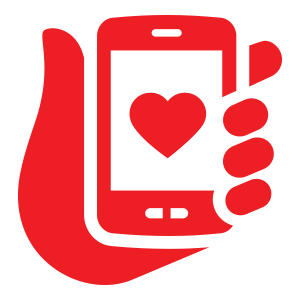
There is nothing to be ashamed of if you are suffering from a mental health issue. It is something that many men experience, even if they don’t talk about it.
You can start by speaking to your friends or loved ones to get support. Let them know that you aren’t feeling well.
If you don’t feel like you can talk to friends or even if you do, you should speak to a nurse or health care provider at your clinic. Some mental health issues need counselling or even medication.
You can also check out some of your local organizations who may be able to provide you with a referral for care.
The first step is to reach out and ask for help, acknowledge that you aren’t feeling well.
Find out more / download
Check out the links below for more information on Mental Health and Well-being
- Link
- Link
- Link
You can also download the contents of this section by clicking here.
Your Health, Your Rights
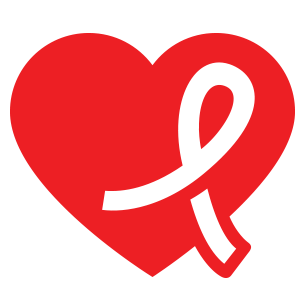
We all have basic human rights, no matter who we are, or who we have sex with. One of those rights, it’s the right to health. This means that we all have the right to get health care including getting treated for HIV and STIs.
Sometimes, your right to health can be violated by healthcare workers if they:
- Deny you access to health care
- Discriminate against you while providing health care
- Tell other people about your health status without your permission
It's important that you recognize your rights and know if they are being violated by a healthcare worker so that you can do something about it.
What if I need help?
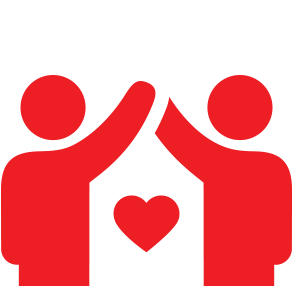
What should I do if my rights are violated?
- Report the violation to the healthcare facility
- If you don’t feel comfortable reporting, let civil society organizations know that the violation happened so they can advocate on your behalf
- Seek out health care from different centres that are more friendly for MSM
Find out more / download
Check out the links below for more information on your rights to health
- Link
- Link
- Link
You can also download the contents of this section by clicking here.
Local Organizations in Kenya

Gay and Lesbian Coalition of Kenya
The Gay and Lesbian Coalition of Kenya Is the National SOGIE Umbrella Body, Representing LGBQ Voices Across Kenya.
How to contact:
You can reach the Gay and lesbian Coalition of Kenya on +254 20 2426060
Ishtar MSM
A community-based organization that advances sexual health rights of Men who have sex with Men (MSM) to reduce the stigma and discrimination by creating awareness with the aim of advocating for their rights to access health care, including STI/HIV and AIDS-related care and treatment.
How to Contact:
You can reach Ishtar MSM on +254 20 2497228 or +254 713 797 157
Keeping Alive Societies Hope (KASH)
Empowers sex workers and MSM economically so as to promote a healthy society and advocate for their human rights.
How to contact:
Find KASK on Facebook at Keeping Alive Societies Hope or on Twitter – @kashkenya; or @KASH_updates.
You can give KASH a call on +254-57-2025939 / 0721-445452
Local Organizations in Tanzania

LGBT Voice Tanzania
National Lesbian, Gay, Bisexual and Transgender (LGBT) organization working to advance equality, diversity, education, and justice for LGBT people in Tanzania.
How to contact:
You can reach LGBT Voices Tanzania on: +255 715 334 419
Community Health Education Services & Advocacy (CHESA)
Human Rights, Awareness, Prevention programmes and Treatment Literacy for MSM
How to Contact:
You can contact CHESA on +255 620 520 600 or email them at [email protected].
Find CHESA on Instagram and Facebook @ CHESATANZANIA or on Twitter@ Chesa2008
Local Organizations in Uganda

Let’s Walk Uganda
A blog for LGBT Youth
How to Contact:
You can reach Let’s Walk Uganda on WhatsApp at +256 (0)75 744 1628 or on Facebook or Twitter at LetsWalkUganda.
Icebreakers Uganda
A non-profit support organization for Lesbian, Gay Bisexual, Transgender people focused on Sexual Health, Sexual Health Rights advocacy, community mobilization and HIV/AIDS awareness and prevention for all LGBT people.
How to Contact:
You can find Icebreakers on facebook at icebreakersuganda or on twitter at icebreakersUG
You can give icebreakers a call on +256392853652 or +256752538003 or 0701791412



